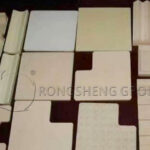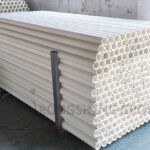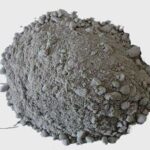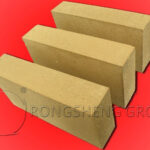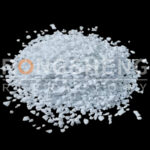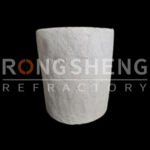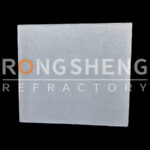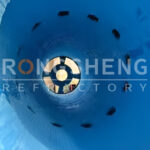Lightweight mullite brick and lightweight high alumina bricks are both belongs to lightweight refractory bricks, and what’s the difference between the lightweight mullite bricks and alumina insulating bricks? The following are the several aspects:
- Raw Material and Production Process
Lightweight mullite bricks are made of high purity refractory powder, which is a kind of lightweight refractory brick with mullite phase after special process and high temperature sintering.
Light high alumina brick is a lightweight refractory brick with glass phase at 1300-1500 degrees centigrade after adding bauxite clinker into clay and using foam adding method or gas generation method.
- Using Temperature
Lightweight mullite bricks have mullite phase, its using temperature is high, about 1500℃; Lightweight high alumina refractory brick’s using temperature is about 1350℃.
- Application
Lightweight refractory bricks are used as heat insulation layer or permanent layer of industrial furnace, not contact with slag and molten materials. Lightweight mullite bricks have excellent performance, can be used in the heat insulation layer of metallurgy, petrifaction, construction material, ceramics and other industrial furnace, it also can be used in the working layer contact with flame, and the temperature is not higher than 1450℃.
Lightweight high alumina refractory bricks are used in the parts of heat insulating layer and permanent layer or the parts without strong high temperature erosion and crushing, if contact with molten material, the temperature is not higher than 1350℃.
- Characteristics
Lightweight mullite bricks have the advantages of good high temperature volume stability, low creep, small thermal stability, strong resistance to molten material.
Lightweight high alumina refractory bricks have the advantages of good insulation effect, and good thermal shock resistance.
- Index
| Item | Lightweight mullite brick | Light weight alumina bricks | ||
| TL-1.0 | TL-0.8 | TL-1.0 | TL-0.8 | |
| Maximum use temperature,℃ | 1450 | 1400 | 1300 | 1250 |
| Al2O3,% ≥ | 76 | 65 | 48 | 48 |
| Fe2O3,% ≤ | 1 | 1 | 2 | 2 |
| Volume density,g/cm3 ≤ | 1 | 0.8 | 1 | 0.8 |
| compressive strength,Mpa ≥ | 3 | 2 | 4 | 3 |
| The temperature of the refired shrinkage less than 2%,℃ | 1450 | 1400 | 1400 | 1400 |
| refractoriness,℃ > | 1790 | 1790 | 1710 | 1670 |
| Thermal coefficient w/(m·k) Average temperature350,℃ ≤ | 0.4 | 0.3 | 0.35 | 0.35 |
